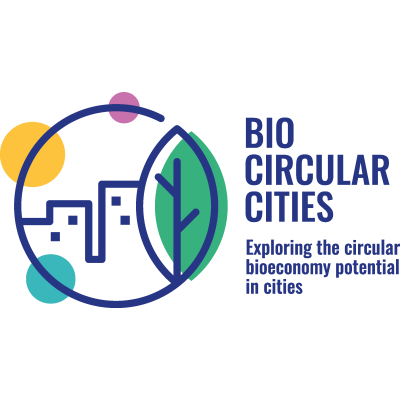
BIOCIRCULARCITIES
Exploring the circular bioeconomy potential in cities. Proactive instruments for implementation by policy makers and stakeholders

Exploring the circular bioeconomy potential in cities. Proactive instruments for implementation by policy makers and stakeholders
While there is an inevitable degree of synergy between the circular economy and the bioeconomy, it does not axiomatically follow that bioeconomy projects are automatically circular. Although both make use of organic waste, and while both make better use of resources, their goals are not identical. The former aims to reduce the use of fossil-based resources through making more use of recycled materials, while the latter looks to switch from fossil-based to bio-based resources. Through aligning the two, there is still room for improvement in the circularity of the bio-based economy.
However, achieving these efficiencies means recognising that there are myriad actors in bio-based product chains. It also means recognising that their perspectives and priorities on managing biowaste differ. Yet if a circular economy is to become a reality, this common alignment needs to be achieved. This means defining a common strategy that disparate sectors can align with; it will require long term investment from stakeholders – and a regulatory and legislative framework capable of encouraging that, it will require governments at all levels to set policies that make circular bioeconomy approaches economically sustainable. The BIOCIRCULARCITIES project is designed to help identify and develop innovative and comprehensive regulatory frameworks and roadmaps that are well aligned with circular bioeconomy principles.
The BIOCIRCULARCITIES project will focus on the interactions between the circular and bio-economies, using insights derived from multi-stakeholder participatory processes. It will consider both supply-side and demand-side aspects of policymaking to maximise the effectiveness. It will determine these through four strands. The first will be by exploring the circular economy potential of unexploited bio-based waste streams generated around three European cities - Barcelona in Spain, Naples in Italy and Pazardzhik in Bulgaria. The second will be to identify and analyse those circular bioeconomy best practices in the EU that could be successful in the pilot areas. Third, opportunities and obstacles to for introducing such processes. It will then use the learnings from the three areas to propose proactive instruments and policy roadmaps that can be applied in a wider European context.
The overarching goal of the BIOCIRCULARCITIES project is to generate valuable insights for policy makers and legislators. The information will help them when developing policy measure that can reconcile the demands of legislation, waste management, circularity and the bioeconomy. Within this, the project will pursue a number of specific objectives. It will:
The project will also create a business plan for exploiting the project results.essing the bioeconomy, with a particular focus on the requirements of end-of-waste for organic residual streams.
These are the expected impacts of the project: